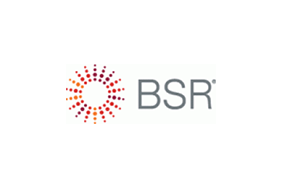BSR Report Reveals Opportunities to Improve Corporate Environmental Performance Measurement Tools
Published 05-25-11
Submitted by BSR
With growing public scrutiny over how corporate operations affect "ecosystem services"--those natural systems that businesses rely on for raw materials, adequate supplies of clean water, and protection from natural disasters--companies from Dow Chemical to Puma are launching initiatives to measure their impacts using a new class of tools.
But according to BSR, which conducted the first side-by-side comparison of seven ecosystem services tools, there's great room for improvement to make the tools more useful to companies looking for an effective "off-the-shelf" application that can also fit into existing corporate protocols for measuring environmental impacts and corporate performance.
Before BSR's study--which examined how the tools performed assessing impacts on services like water provisioning and carbon sequestration in a hypothetical housing-development project--it was difficult to determine the unique value of each tool due to the limited number of tests in corporate settings.
"Companies that are interested in understanding their impacts and dependencies on ecosystem services find it difficult to know which tool is most appropriate for their company's needs," said BSR's Research Manager Linda Hwang, a coauthor of the report who also leads the organization's Ecosystem Services, Tools & Markets working group. "Our study gives them insight into potential applications for the tools, and shows them how the concept of ecosystem services can be integrated into corporate decision-making processes."
BSR's report, "New Business Decision-Making Aids in an Era of Complexity, Scrutiny, and Uncertainty," highlights the importance of refining the tools based on three main areas:
- Comparability: Because the tools were developed with different metrics and methods in mind, they are difficult to compare, which means decision-makers must evaluate each tool uniquely based on its credibility, cost, ability to replicate findings, and the added value (such as cost savings and streamlined permitting processes) the tool provides. In some cases, this means a combination of tools is necessary.
- Off-the-shelf application: None of the tools is ready for large-scale implementation due to the gap between what tool developers are offering and what corporate decision-makers actually need--that is, a flexible, modular tool that helps them make more immediate, practical decisions and assists with their understanding of how stakeholders value and make trade-offs among ecosystem services in specific contexts.
- Compatibility with existing protocols: From environmental and social impact analyses to life-cycle assessments, companies today have a suite of processes to assess their environmental performance. If their use is to be justified within corporate decision-making processes, ecosystem services tools must fit within these protocols and offer benefits not already provided by these processes.
"Our findings reveal many open questions, but they also underscore the importance of the rapidly evolving field of ecosystem services," Hwang said. "For company leaders, 'corporate performance' now encompasses 'environmental performance'. And when it comes to measuring impacts--and protecting ecosystem services--company leaders need tools that can be pulled off the shelf and plugged into existing protocols."
Read the full report at www.bsr.org/reports/BSR_ESTM_WG_Comp_ES_Tools_Synthesis.pdf, or contact Linda Hwang at lhwang@bsr.org for more information about BSR's work on ecosystem services.
Members of the media should contact Eva Dienel at edienel@bsr.org.
About BSR
A leader in corporate responsibility since 1992, BSR works with its global network of more than 250 member companies to develop sustainable business strategies and solutions through consulting, research, and cross-sector collaboration. With offices in Asia, Europe, and North America, BSR uses its expertise in the environment, human rights, economic development, and governance and accountability to guide global companies toward creating a just and sustainable world. Visit www.bsr.org for more information.

BSR
BSR
Since 1992, Business for Social Responsibility (BSR) has been providing socially responsible business solutions to many of the world's leading corporations. Headquartered in San Francisco, with offices in Europe and China, BSR is a nonprofit business association that serves its 250 member companies and other Global 1000 enterprises. Through advisory services, convenings and research, BSR works with corporations and concerned stakeholders of all types to create a more just and sustainable global economy. For more information, visit www.bsr.org.
More from BSR

